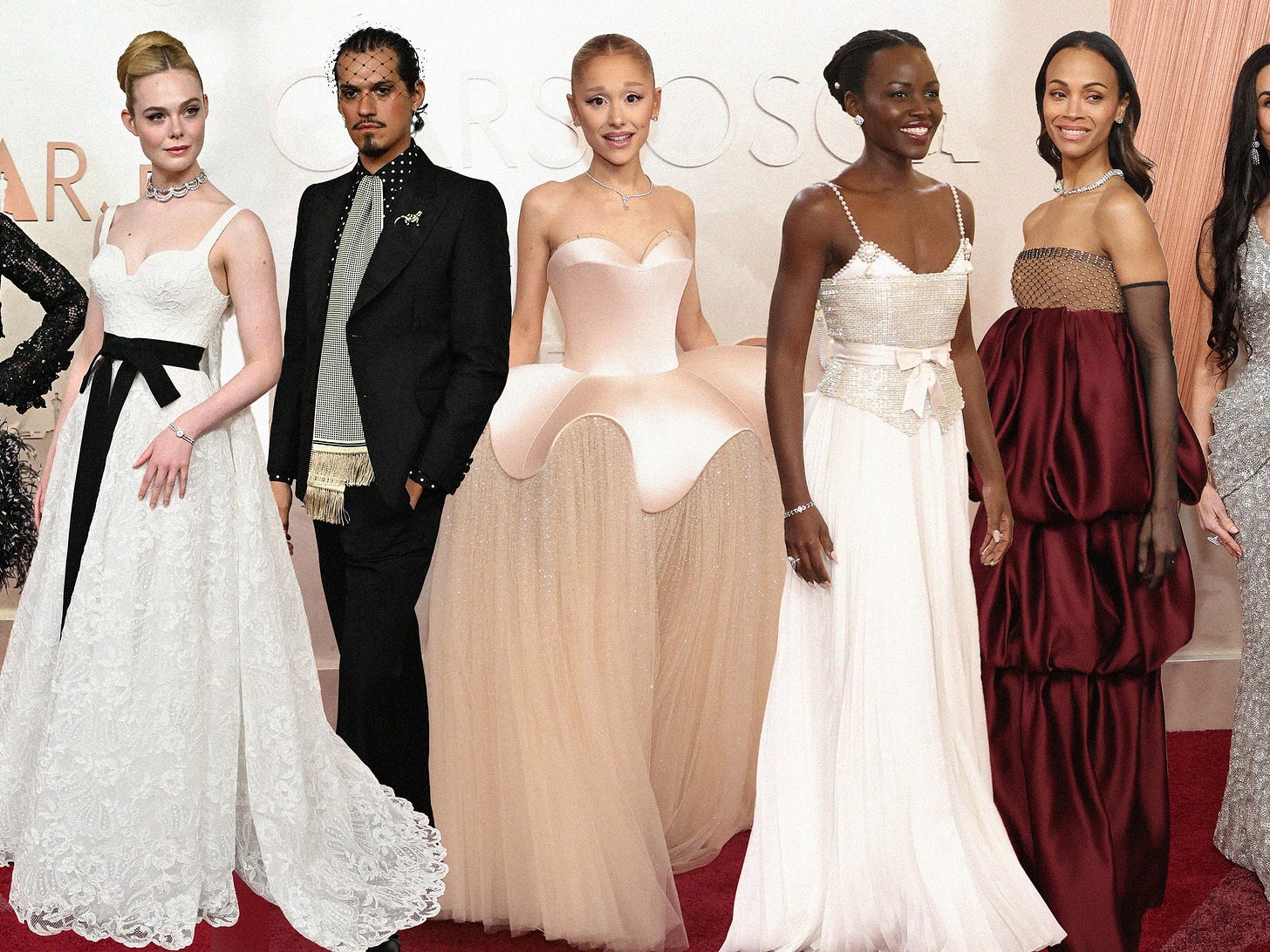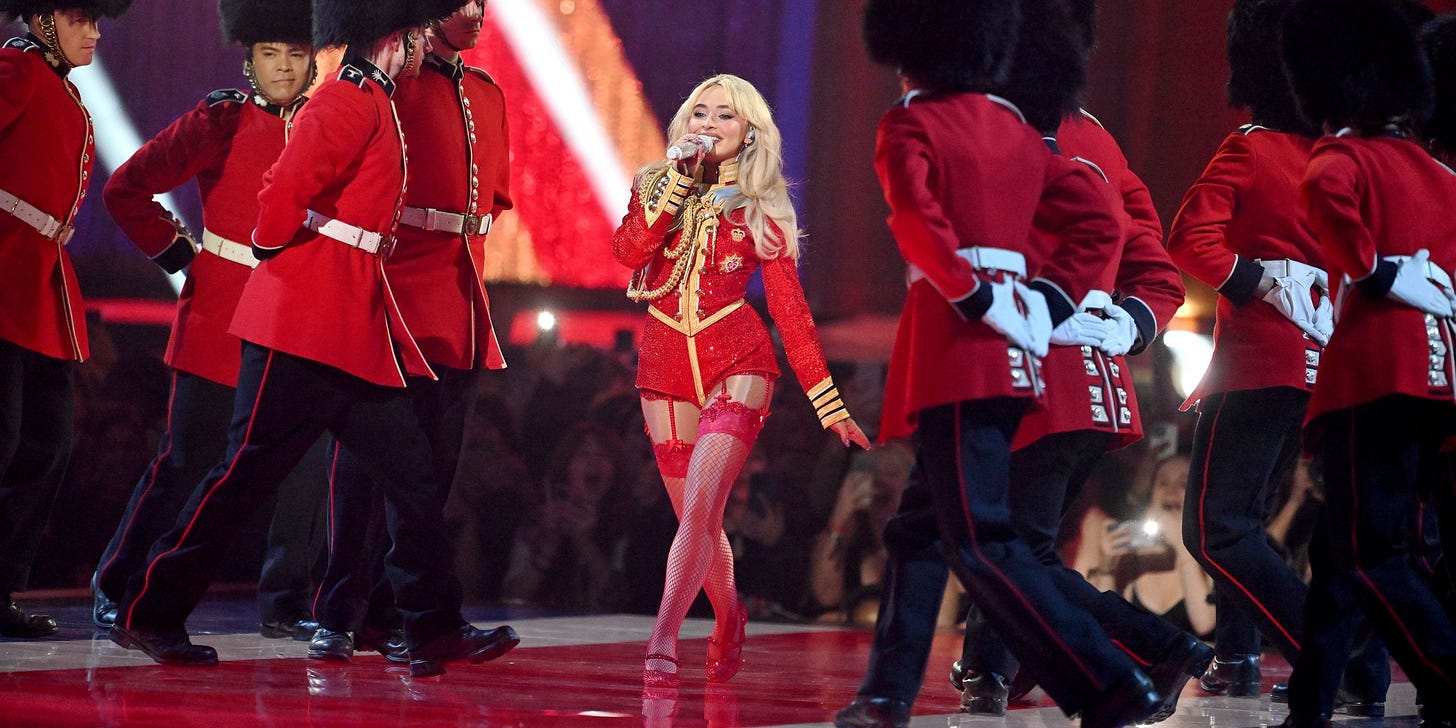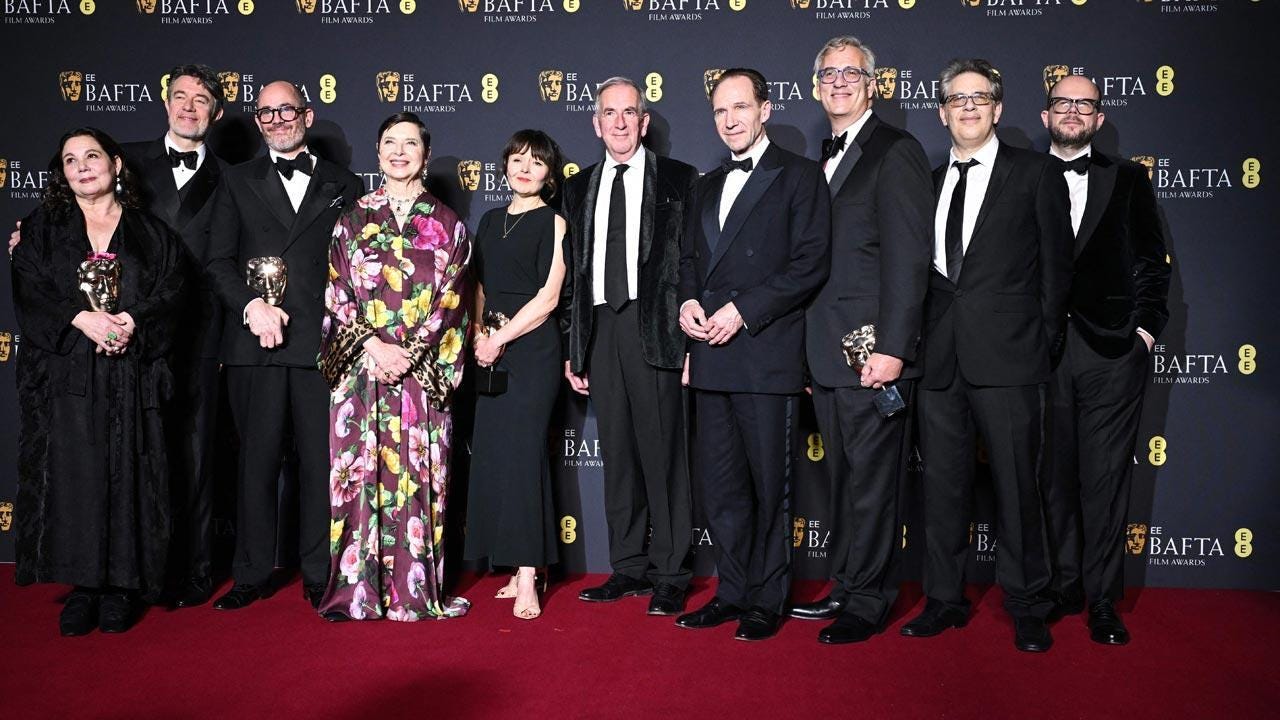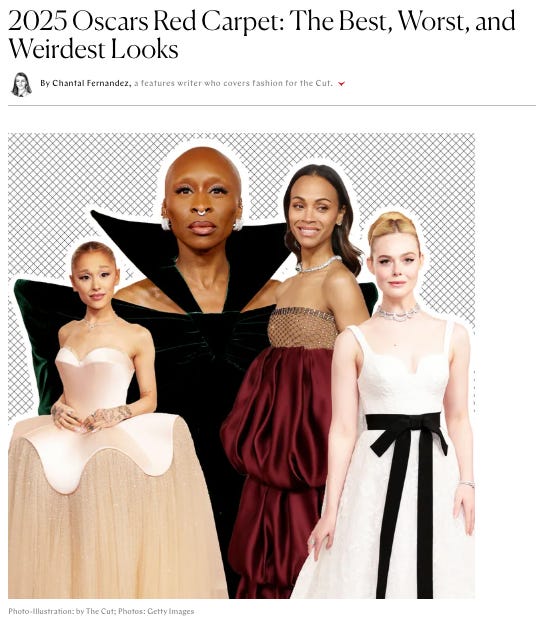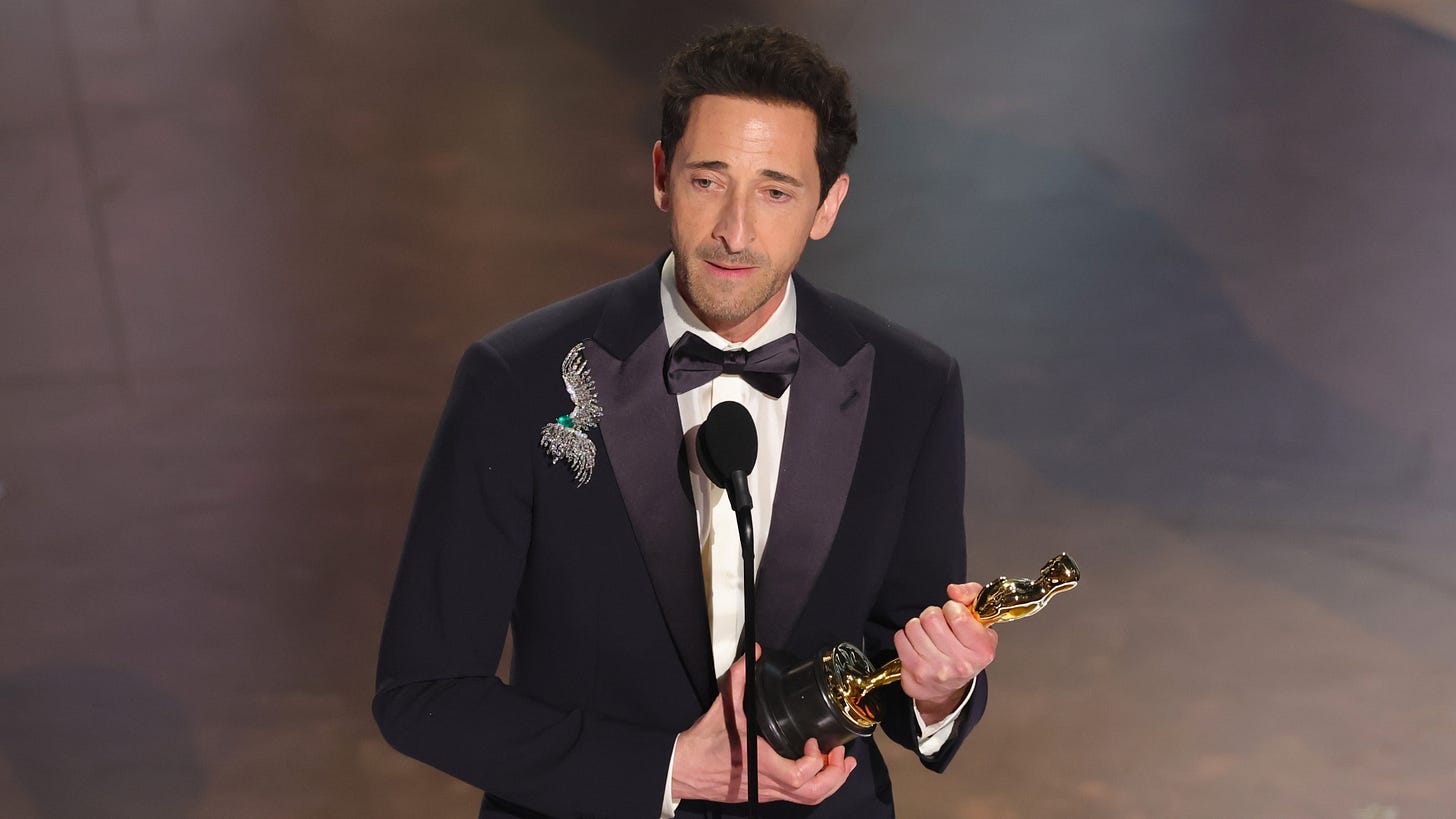ISSUE 016
IN SITU this week we talk about whether award shows in their current form are culturally outdated, and why getting off the internet is key to finding true insight.
IN SITU is a platform dedicated to the intersection between culture, brand strategy and music. Sometimes the focus will be on one strand more than another, but always sitting in that sweet spot.
ISSUE 016 AT A GLANCE
LONG READ Cultural observation opinion piece: Is awards season an outdated concept?
VERBATIM Quote from cultural tastemaker: Laura Boerboom - Cultural Strategist & Semiotician
SHORT READ Belief relating to strategy and/or insight: Core Belief #13: Get off the internet if you want real insight
MUSIC CORNER Album recommendation: Mereba - The Breeze Grew a Fire
LONG READ
IS AWARDS SEASON AN OUTDATED CONCEPT?
I am all for giving people their flowers. Good work should be rewarded, whether that’s in public or private. But is the concept of a 2 month period where A-list celebrities get trotted out on red carpet after red carpet, sit in a room for 4 hours listening to somewhat funny jokes and clap endlessly, just a little stale?
Award shows, especially the all-singing, all-dancing Hollywood ones, used to be a sparkling lens into the glamorous life of celebrities. The red carpet interviews would give us soundbites to cling onto, we’d see who their plus one was, watch their unfiltered reactions to winners, and of course, their best outfits. All your favourite celebrities, all in one room, for one night only (sort of).
The whole point of these ceremonies is to honour artistic achievement, whether it be on or off screen, and this is still valid. Even for most of us who don’t work in the entertainment industry, we enjoy seeing good work rewarded and even more so when there’s a story attached, e.g. first Oscar win for an actor, or the youngest person to win such and such award.
When it comes to music awards, it feels as though the thrill is more alive. Whether it’s the GRAMMYs or The BRITs, music is such a powerful unifier, and much easier to digest than a TV series or film. The focus feels more on the art than the outfits, and especially as music award shows contain plenty of live performances, it’s more exciting for viewers.
Furthermore, as music moves so quickly, and there tend to be more nominations per category than TV/film awards, it serves as a helpful reminder of all the great releases in the specified period, some of which will be over a year old.
For the creatives in question, it’s obviously a huge moment in the spotlight, whether they win or not. It validates their talent among peers, to industry figures and to fans. It offers a night off from their busy schedule to celebrate if not themselves, then at least the frenemies close to them. By being at the show itself or at an exclusive pre/after party, it heightens their status that bit more, and perhaps leads to opportunities delivered by that network.
I would also argue that from a British perspective (as with any other national award ceremony) it’s a chance for the country’s talent to stand up tall. The UK arts industry tends to get overshadowed by it’s American cousin, but as referenced in ISSUE 002, we have so much to celebrate at home. The BAFTAs, The BRITs and The MOBOs to name but a few, are hugely important to championing British talent across TV, film and music.
But has the shine somewhat worn off the whole thing? The fuss seems more heightened than ever given the amount of content around it, and it’s mainly the same clips posted over and over, with a sprinkle of critical commentary. We don’t need more photos of celebrities. We see celebrities all. the. time. We see them do their groceries, on dates, working out, on set and walking down the street. To be honest we see them too much, and I’m sure they would agree. So does 2 months of endless photos and videos really feel necessary, or more to the point, in touch with reality?
Some would argue it’s entertainment and therefore precisely an escape from reality. Gowns and tuxedos, diamonds and pearls, it’s all a big performance for our benefit. But the world feels on edge, and yet we’re dining out on “top ten worst red carpet looks”. It just feels off.
It’s also precisely this plethora of cameras and content that has dampened these shows. Terrified of saying the wrong thing or revealing something they shouldn’t, celebs are not giving us much to go on. Even the hosts are playing it safer (mostly) and although we should rule out offensive jokes, it feels as though the narrative is too guarded to be funny.
Furthermore, the way we consume media has changed. Many people will just digest clips online, meaning only key moments get seen as it’s not often viewed as a linear broadcast. This removes even more sentiment and meaning from the event, as it’s reduced down to whichever moments the internet deems worthy, and nothing in between.
I’m not advocating for abolishing award shows, and I enjoy a good outfit as much as the next person. But it feels as though something that should be a lifetime achievement is not only produced in a way that feels out of touch with reality, but also is reduced to a few viral moments that dilute all meaning. I do not have the solution, but it does feel like an institution ripe for change, along with many other elements of the creative industries.
VERBATIM
WHAT ROLE DO YOU THINK AWARD SHOWS PLAY IN POPULAR CULTURE TODAY?
LAURA BOERBOOM - CULTURAL STRATEGIST & SEMIOTICIAN
Award shows still hold significant value in popular culture today, though they are evolving in response to the shifting dynamics of media consumption and celebrity culture. In their traditional form, they offered a unique space for public celebration and validation of artistic achievement as well as providing a space to reinforce and renegotiate the status quo. From a semiotic perspective, award shows symbolised a hierarchy within cultural production, marking the "best" within music, film, and television.
However, as celebrity culture has become more pervasive through social media, the symbolic capital of these events has diluted. Celebrities are no longer just seen during a red carpet spectacle, they are constant fixtures in the public eye, their every move documented, shared and analysed.
The curated spectacle of the red carpet and shows, once seen as glamorous and aspirational, now risks feeling out of touch with the rapidly evolving realities of the global audience. A prime example is Adrien Brody’s record-breaking long Oscar speech at this year’s Oscars, which was widely considered by the public as self-indulgent, is perhaps no longer as relevant to those watching from afar.
Yet, at their core, these events continue to function as a collective ritual, offering a stage for the recognition and celebration of creativity, and exploration of cultural power and the zeitgeist, albeit in a more fragmented and commercially-driven format. As media and celebrity culture evolve, it’s clear that the role of award shows will continue to shift, redefining what, why and how we will be celebrating in the years to come.
SHORT READ
CORE BELIEF #13: GET OFF THE INTERNET IF YOU WANT REAL INSIGHT
There is definitely a time and place for desk research (i.e. trawling the internet) and it can bring a lot of value. There are definitely skills to this, and you can find a lot through well-curated wormholes. But everyone else has access to the same data points and resources that you do, so how different or deep is the insight really going to be?
To truly find some nuggets that are going to make a difference to your perspective or approach to a brief, get outside. Walk around, to go exhibitions, talk to people, tighten your observational powers and reframe your mind to see what others might be missing. It’s in this way that you’re going to articulate something that people might not know that they knew, and you’re hitting that ‘ah-ha moment’ we all strive to achieve.
MUSIC CORNER
MEREBA - THE BREEZE GREW A FIRE
Alternative RnB artist Mereba has ended a 5 year hiatus within which she became a mother, with the release of her third studio album, The Breeze Grew a Fire. Always an artist with depth, this album feels like she has reached new places deep within from entering motherhood and also spending time Ethiopia, where her father is from.
One cannot help but felt soothed and rocked like a baby by her effortless voice and meditative production. Even if one cannot relate to her personal experiences, it feels like it connects on a deeper, ineffable level that goes beyond a specific narrative. This is absolutely a welcome re-entry into the industry from an artist who has not yet reached the critical or commercial success she deserves.
ADon’t forget to follow IN SITU on Instagram @insitu.njd, and check out my website at nicolajdavies.com.



